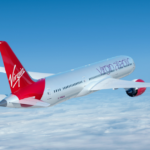
(TAN): The International Air Transport Association (IATA)’s 77th Annual General Meeting on October 4 approved a resolution for the global air transport industry to achieve net-zero carbon emissions by 2050. This commitment will align with the Paris Agreement goal for global warming not to exceed 1.5°C, IATA said.
“The world’s airlines have taken a momentous decision to ensure that flying is sustainable. The post-Covid-19 re-connect will be on a clear path towards net zero. That will ensure the freedom of future generations to sustainably explore, learn, trade, build markets, appreciate cultures and connect with people the world over. With the collective efforts of the entire value chain and supportive government policies, aviation will achieve net zero emissions by 2050,” said IATA Director General Willie Walsh.
[ALSO READ: Four Seasons Resort Mauritius at Anahita has reopened]
Achieving net zero emissions will be a huge challenge. The aviation industry must progressively reduce its emissions while accommodating the growing demand of a world that is eager to fly. To be able to serve the needs of the 10 billion people expected to fly in 2050, at least 1.8 gigatons of carbon must be abated in that year. Moreover, the net zero commitment implies that a cumulative total of 21.2 gigatons of carbon will be abated between now and 2050.
A key immediate enabler is the International Civil Aviation Organization’s (ICAO) Carbon Offsetting and Reduction Scheme for International Aviation (CORSIA).
IATA represents around 290 airlines comprising 82% of global air traffic.




